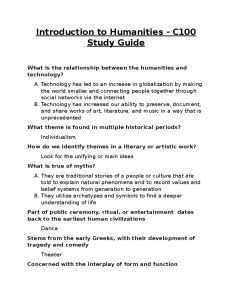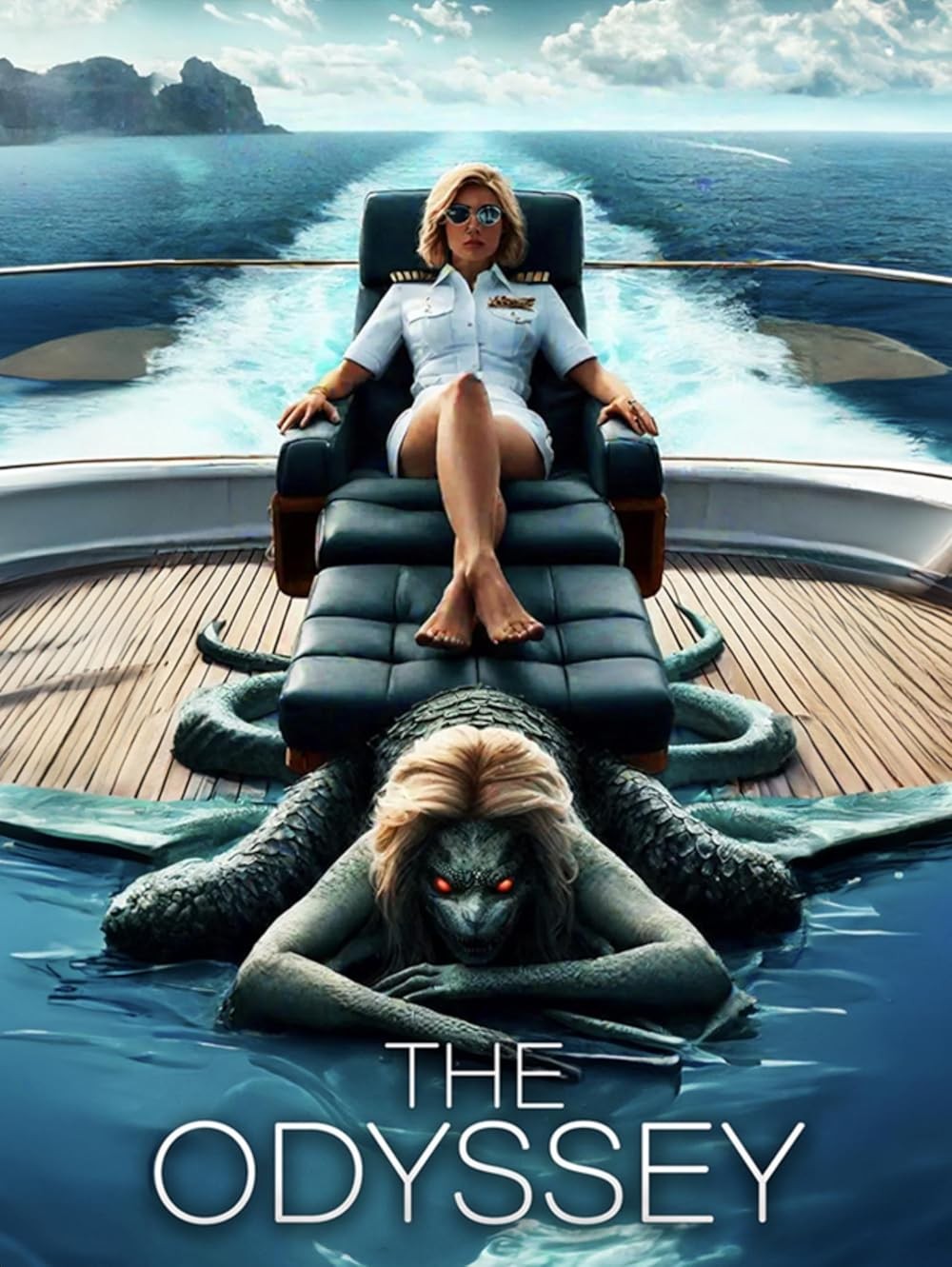“The Odyssey,” an epic poem attributed to Homer, remains one of the most influential works in classical literature, enchanting readers for nearly 3,000 years. This timeless tale chronicles the harrowing journey of Odysseus, showcasing his trials and tribulations as he seeks to return home after the Trojan War. As audiences are captivated by the cunning and complex character of Odysseus, numerous adaptations, including modern translations and stage productions, continue to breathe new life into the narrative. The rich themes of adventure, loyalty, and the quest for identity resonate across generations, highlighting the poem’s significance in the realm of epic poetry. With upcoming translations and cinematic interpretations, such as the anticipated film by Christopher Nolan, “The Odyssey” solidifies its place as a cornerstone of literary heritage.
The legendary narrative known as “Homer’s Odyssey” has become a hallmark of ancient storytelling, representing the quintessential epic saga that explores the depths of human experience. This classic work is renowned for its intricate portrayal of the hero’s journey, particularly through the lens of the enigmatic Odysseus character, who personifies the virtues and vices of humanity. As seasoned literary enthusiasts and newcomers alike discover the myriad of Odyssey translations available, they are invited to reflect on the timeless themes embedded within its verses. Each retelling offers a fresh perspective on the universal struggles of love, morality, and resilience, echoing across the landscapes of classical literature. As we delve deeper into this magnificent poem, we ground ourselves in its rich tapestry of adventure and introspection.
Homer’s Odyssey: The Lasting Legacy of an Epic
Homer’s Odyssey, over the centuries, has garnered an extraordinary distinction in classical literature, captivating audiences with its intricate narrative and rich characterization. This epic poem, believed to have been composed around the late eighth century BCE, is not merely a tale of adventure; it epitomizes a universal journey that transcends time, offering profound insights into human nature and morality. As readers navigate through Odysseus’ trials, they are oftentimes reflecting on their own life challenges, making it a highly relatable experience. Today, with adaptations like the recent stage production at the American Repertory Theater, the arching themes of love, loss, and perseverance found in Homer’s masterpiece continue to resonate with contemporary society beyond the confines of classical literature.
The poem’s enduring appeal is fortified by the various translations and interpretations that bring Odysseus’ complex character to life. Among the numerous translations, Daniel Mendelsohn’s upcoming rendition promises to provide fresh insights into the text, inviting both seasoned scholars and new readers alike to re-engage with its timeless themes. This resurgence is fueled by modern adaptations, including the much-anticipated big screen interpretation by Christopher Nolan, which showcases the universal relevance of the Odyssey’s exploration of heroism and human flaws in today’s world.
The thematic richness of the Odyssey has led to its study and analysis across multiple disciplines, further solidifying its position as a cornerstone of epic poetry. The exploration of Odysseus as a character—his cunning, his relationships, and his internal conflicts—opens up discussions on the nature of heroism. Scholars argue that rather than embodying ideal qualities, Odysseus is portrayed with a profound sense of humanity, showcasing traits that are simultaneously admirable and deeply flawed. This complexity offers a mirror through which audiences can explore their own moral dilemmas and the societal constructs that shape their identities, highlighting the poem’s psychological depth that remains relevant in today’s cultural landscape.
The Character of Odysseus: A Study in Complexity
Odysseus stands as a figure of multifaceted complexity in Homer’s Odyssey, often being labeled as a ‘trickster hero’. His character embodies contradictions; he is both clever and capricious, vengeful yet deeply compassionate. Historians and literary critics have explored how Odysseus’ behaviors reflect the social norms of his time, which he cleverly maneuvers around to achieve his goals. For example, his renowned wit allows him to outsmart formidable foes, yet his journey also exposes his vulnerabilities and flaws, creating a rich tapestry of character that has captivated audiences for millennia. This intricate portrayal prompts readers to consider what it truly means to be heroic, challenging traditional notions of virtue and morality in epic poetry.
Moreover, Odysseus’ narrative arc can be seen as a reflection of the human condition—his triumphs and failures resonate with the struggles and aspirations of contemporary readers. By charting his complex journey home, Homer’s Odyssey offers profound insights into resilience, adaptability, and ethical ambiguity, illustrating that personal growth often emerges from difficult circumstances. This intricate exploration of Odysseus not only enriches the narrative but also inspires readers to embark on their own journeys of self-discovery.
The theme of identity is central to the character of Odysseus. From the very first line of the Odyssey, we see him described as a ‘man of twists and turns’, encapsulating the essence of his ability to navigate different personas as circumstances dictate. Each encounter on his journey provides valuable lessons and tests, shaping him while simultaneously questioning the idea of a steadfast identity. Readers are invited to consider how their own identities can be fluid, challenging the rigidity of societal expectations. The exploration of this theme in the Odyssey continues to spark discussions across literary circles about the nature of self and the dichotomy of who we are versus who we are perceived to be.
Modern Adaptations of Homer’s Odyssey
The influence of Homer’s Odyssey reached far beyond its original context, inspiring countless adaptations and reinterpretations across various media. In recent years, there has been a notable resurgence of interest in the Odyssey as filmmakers and playwrights find new ways to present these ancient themes to modern audiences. Christopher Nolan’s upcoming film adaptation, for instance, is poised to introduce Odysseus’ journey to a new generation, highlighting his struggles and triumphs within a contemporary framework. This not only demonstrates the story’s versatility but also affirms its status as a foundational text that continues to inspire artistic expression in classical literature and beyond.
Adaptations vary greatly in their fidelity to the original text, often reimagining characters and framing narratives to resonate with modern societal issues. For example, productions that emphasize Penelope’s strength and intelligence offer a fresh perspective on her pivotal role within the narrative, challenging traditional notions often overshadowed by Odysseus’ heroics. Such reinterpretations not only breathe new life into these age-old stories but also provoke discussion about gender roles and power dynamics, revealing how the complexities of the Odyssey still inform contemporary dialogues on heroism, loyalty, and personal agency.
Additionally, the diverse translations of the Odyssey, including those by George Chapman, Robert Fagles, and Emily Wilson, have contributed to the poem’s lasting legacy. Each translator interprets the text through a unique lens, enriching our understanding of Odysseus’ character and the narrative’s overarching themes. Wilson’s translation, in particular, emphasizes the emotional depth of the characters, offering readers an intimate connection to their plights and victories. By presenting the Odyssey through various interpretations and adaptations, we see how the epic remains relevant, illustrating not only the universality of its themes but also the evolving nature of storytelling across generations.
The Importance of Translations in Understanding The Odyssey
The evolution of the Odyssey into various translations underscores the poem’s significance in understanding classical literature. With over 100 translations available, each version opens a new doorway into Homeric poetry, accommodating readers with varied preferences and cultural backgrounds. A translation can shape a reader’s perception of the epic: whether through the lyrical style of Robert Fitzgerald or the contemporary voice of Emily Wilson, every translator finds unique ways to breathe life into the original Greek text. This multiplicity of interpretations encourages discussions about language, culture, and the interpretation of classic literature, leading to an enriched understanding of Odysseus’ journey and the poem’s overarching moral lessons.
Translations also serve to preserve the intricate nuances of Homer’s language, allowing readers to appreciate the artistry of his storytelling. For instance, George Chapman’s early 17th-century translation resonates with its Elizabethan flair, while contemporary translations strive for accessibility and emotional depth. The diversity in translation styles reflects the evolving nature of language, artistry, and societal values, ensuring that the Odyssey remains a living document rather than a mere historical artifact. By engaging with these varying translations, readers not only gain insight into Odysseus and his adventures but also immerse themselves in the broader discourse surrounding classical literature.
While translations play a vital role in accessing the text, they also highlight the challenges inherent in interpreting ancient works. Each translator must grapple with the balance between fidelity to the original and the necessity of rendering the text in a way that resonates with modern readers. This brings forth important questions about accuracy and the interpretation of cultural norms that may differ vastly from those of today. The dialogue surrounding these challenges enhances the academic discourse on the Odyssey, inviting readers and scholars alike to consider how language shapes our understanding of heroism, morality, and humanity.
Exploring the Themes of Heroism in The Odyssey
Heroism in Homer’s Odyssey is a complex and multifaceted concept that goes beyond mere feats of strength and bravery. While Odysseus is often celebrated for his cunning escapades and triumphs over adversities, a deeper analysis reveals the various dimensions of his character that challenge traditional notions of heroism. For instance, his intelligence and resourcefulness are complemented by moments of vulnerability and moral ambiguity, suggesting that true heroism may lie in the navigation of complex ethical landscapes rather than in the relentless pursuit of glory. This nuanced portrayal invites readers to reflect on their own definitions of heroism and the values that underpin them, prompting a rich discourse on personal integrity and societal expectations.
Moreover, the Odyssey illustrates the contrast between different types of heroism through its supporting characters. Penelope, often overlooked, exhibits her own form of strength characterized by loyalty and intelligence. Her resilience in the face of uncertainty showcases that heroism can manifest in quieter yet equally impactful forms. By presenting varied representations of heroism, the Odyssey encourages readers to expand their understanding beyond archetypal heroes, celebrating the ordinary moments of bravery and resolve that define the human experience.
The concept of homecoming permeates the narrative, reinforcing the theme of what it means to be a hero in the context of family and community. Odysseus’ relentless pursuit to return to Ithaca and reunite with Penelope and Telemachus accentuates the ties of loyalty and love that elevate his journey from mere adventure to a quest for belonging. This deep-rooted desire for connection underlines the notion that true heroism is not solely about individual glory but is also about fulfilling responsibilities towards loved ones and one’s homeland. Thus, the Odyssey serves as a poignant reminder that heroism is often intertwined with sacrifice and devotion, catalyzing a dialogue on modern heroism that resonates across cultures and eras.
Odysseus and the Concept of the Trickster
The character of Odysseus in Homer’s Odyssey can be classified as an archetypal trickster, a figure whose cunning intellect and subversive behavior defy conventional societal norms. Unlike traditional heroes who often embody valor and nobility, the trickster hero operates within a moral gray area, using guile and wit to navigate obstacles. Odysseus’ ability to bend the rules demonstrates the importance of adaptability in the face of dire challenges, highlighting that true heroism often involves a nuanced understanding of context and circumstance. His journey not only showcases his physical capabilities but also his psychological acumen, inviting readers to consider how intelligence and flexibility can be as valuable as brute strength in overcoming adversity.
This trickster aspect of Odysseus is compelling because it reflects the complexities of human behavior and societal expectations. Through his cleverness, Odysseus teaches the audience about the significance of questioning established norms, embodying the idea that breaking the rules can lead to profound lessons. The Odyssey, therefore, becomes not just a narrative of adventure but a philosophical exploration of morality, prompting readers to consider the implications of Odysseus’ choices and the values they represent. This dimension of the text continues to resonate with contemporary audiences, reinforcing the relevance of the trickster archetype in modern storytelling.
The theme of the trickster also invites a deeper examination of identity. Odysseus’ frequent changes in guise and demeanor signal the fluidity of identity and the performative aspects of social roles. His cunning allows him to alter perceptions and assumptions, leading to the question of authenticity in the construction of self. This exploration is particularly significant today, as individuals navigate complex identities in a multicultural and interconnected world. By engaging with Odysseus as a trickster, readers can reflect on their own capacity for reinvention and adaptability, drawing parallels between his legendary escapades and their personal journeys through life.
Penelope: The Unsung Heroine of The Odyssey
While Odysseus embarks on a perilous journey, Penelope remains in Ithaca, embodying resilience and intelligence as the unsung heroine of the Odyssey. Her character challenges traditional gender roles, displaying a strength that is often overlooked in discussions of heroism. Throughout Odysseus’ absence, Penelope employs her wit to fend off suitors and protect her household, proving that heroism can manifest in various forms. Her strategic thinking and emotional fortitude highlight the importance of loyalty and perseverance in the face of adversity, echoing themes prevalent in both classical literature and contemporary narratives.
Penelope’s intelligence is particularly evident in her famous ruse of weaving and unweaving a tapestry, a clever ploy that underscores her agency within the constraints of her societal position. This remarkable portrayal elevates her role from a passive waiting figure to a strategic player in her own right, ultimately reinforcing that both Odysseus and Penelope share a journey marked by challenges and resilience. The duality of their experiences invites readers to appreciate the multifaceted nature of heroism, prompting discussions around narratives that allow for a broader understanding of character strength.
Furthermore, Penelope’s interactions with her son Telemachus reflect another layer of heroism rooted in familial bonds. As Telemachus embarks on his own journey to discover his father, the mother-son relationship underscores the theme of legacy and the enduring impact of guidance. Penelope’s wisdom in nurturing and protecting her son contributes to his growth, propelling him towards his own path of self-discovery. In this light, the Odyssey illustrates how heroism extends beyond individual pursuits to encompass the responsibilities of nurturing future generations—a lesson that remains poignant in today’s familial dynamics.
Themes of Identity and Self-Discovery in The Odyssey
The Odyssey is not merely a tale of external adventures; it is fundamentally a narrative centered around identity and the quest for self-discovery. Odysseus’ long journey home serves as a metaphor for the inner journey that many individuals undergo in their lives. Each encounter he faces—from the enchantress Circe to the treacherous Sirens—acts as a reflective surface, prompting questions about his own identity, choices, and evolving sense of self. This quest for personal understanding reinforces the notion that the journey is as significant as the destination, a timeless lesson that resonates deeply with readers across epochs and cultures.
Moreover, the experiences of Odysseus catalyze significant transformations, challenging him to confront his own values and deep-seated beliefs. The trials he endures elevate his character, revealing layers of complexity that shape his understanding of leadership, loyalty, and love. Unlike static characters bound to preset definitions of heroism, Odysseus embodies the fluctuation of identity, inviting readers to explore their own transformations in response to life’s challenges. The Odyssey’s exploration of self-discovery thereby serves as an invitation for readers to reflect on the myriad paths one can take in their journey toward self-realization.
Odysseus’ relationship with those he meets along his journey further contributes to the theme of identity. Each character he encounters presents different facets of human experience—be it loyalty in his companions, deception in his adversaries, or wisdom in sages like Tiresias. These interactions impress upon Odysseus the multiplicity of existence, emphasizing that identity is not singular but rather a tapestry woven from countless threads of experience. Consequently, the Odyssey encourages readers to embrace the complexity of their identities and consider how relationships and interactions shape who they become, making it a relevant exploration of human existence that cuts across cultural and temporal boundaries.
Frequently Asked Questions
What are the main themes explored in Homer’s Odyssey?
Homer’s Odyssey delves into numerous themes, including the quest for identity, the significance of loyalty, the complexities of fate and free will, and the trials of the hero Odysseus. The epic showcases Odysseus’s adventures and misadventures, ultimately exploring the journey of self-discovery and the importance of homecoming.
How many translations of Homer’s Odyssey exist, and which is the most popular?
There are over 100 translations of Homer’s Odyssey. Some of the most popular translations include those by George Chapman, Emily Wilson, Richmond Lattimore, Robert Fitzgerald, and Robert Fagles. Each translator brings a unique perspective and style to this iconic epic poem.
Why is Odysseus considered a trickster character in The Odyssey?
Odysseus is often labeled a trickster in The Odyssey due to his cunning nature and ability to navigate complex social norms. He embodies traits that allow him to break rules while teaching others about them, revealing moral ambiguities and the human experience. His multifaceted character makes him both a hero and deeply flawed, captivating readers throughout history.
What role does Penelope play in The Odyssey, and why is she significant?
Penelope, the wife of Odysseus, plays a crucial role in The Odyssey as a symbol of loyalty and intelligence. Her cleverness in dealing with the suitors and her unwavering faith in Odysseus’s return highlight her significance. Many scholars regard her as equally resourceful and intelligent, perhaps even surpassing Odysseus in her strategic thinking.
What journey does Odysseus embark on in Homer’s Odyssey?
Odysseus’s journey in Homer’s Odyssey is a physical and spiritual quest. He faces numerous obstacles on his way home to Ithaca after the Trojan War, which serves as a metaphor for the journey of the soul. This epic journey allows readers to explore themes of growth, endurance, and the quest for understanding one’s true self.
How has The Odyssey influenced classical literature?
The Odyssey has profoundly impacted classical literature by establishing narrative structures and themes that resonate through the ages. Its exploration of heroism, adventure, and the human condition has inspired countless works across genres and cultures, affirming its status as a foundational piece of epic poetry.
What makes Daniel Mendelsohn’s translation of The Odyssey unique?
Daniel Mendelsohn’s translation of The Odyssey is celebrated for its lyrical quality and fidelity to the original text. As a highly regarded scholar, Mendelsohn brings a fresh perspective that captures the nuances of Homeric language, making this version both accessible and compelling for modern audiences.
Who are the key characters in Homer’s Odyssey?
Key characters in Homer’s Odyssey include Odysseus, the epic hero; his wife Penelope, representing loyalty and intelligence; Telemachus, their son seeking his father’s legacy; and numerous gods and mythical beings like Athena, Poseidon, and Circe, who influence Odysseus’s journey.
What lessons can readers learn from The Odyssey?
Readers can glean many lessons from The Odyssey, including the importance of resilience, the value of wisdom over brute strength, and the power of love and loyalty. The poem invites readers to reflect on their personal journeys and the inner transformations that result from life’s challenges.
How has The Odyssey remained relevant in contemporary culture?
The Odyssey remains relevant in contemporary culture through adaptations in theater, film, and literature that explore its timeless themes of adventure, homecoming, and the human condition. Recent productions, such as those by A.R.T. and adaptations by filmmakers like Christopher Nolan, highlight the epic’s enduring allure and cultural significance.
| Key Point | Details |
|---|---|
| Enduring Appeal | ‘The Odyssey’ continues to resonate through various adaptations including stage performances and film. |
| Translations | Over 100 translations exist, with notable works by George Chapman, Emily Wilson, Richmond Lattimore, Robert Fitzgerald, and Robert Fagles. |
| Cultural Impact | It has influenced literature and storytelling for nearly 3,000 years, exemplifying the hero’s journey. |
| Character Focus | Odysseus is seen as a trickster hero, fascinating for his complexity and flaws, while Penelope represents intelligence and strength. |
| Journey of the Soul | Readers are encouraged to embark on their own personal journey through engagement with the text. |
Summary
The Odyssey remains a paramount work of literature that captivates audiences with its rich storytelling and profound themes. As it stands the test of time, both in contemporary adaptations and classical studies, the exploration of Odysseus’s journey — marked by cunning, resilience, and transformation — urges us to reflect on our own life experiences. This epic not only illustrates the complexities of human nature through memorable characters but also invites readers to embark on a personal journey of understanding and self-discovery. Whether through stage adaptations, translations, or upcoming cinematic interpretations, The Odyssey continues to inspire and resonate across generations.









